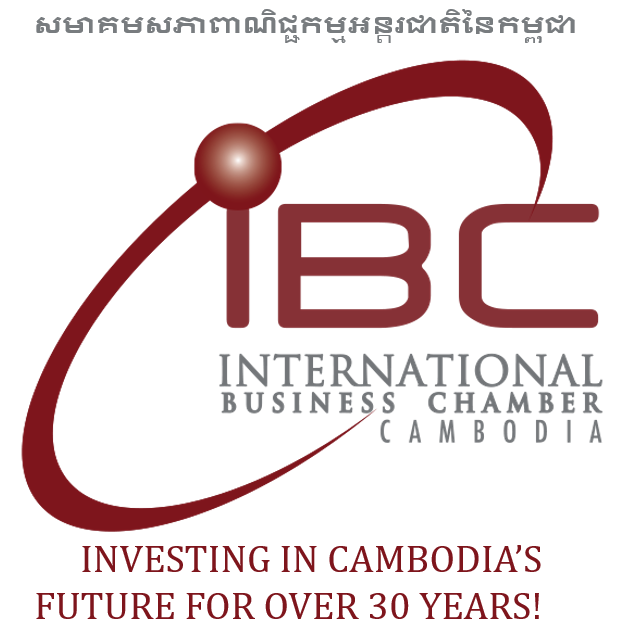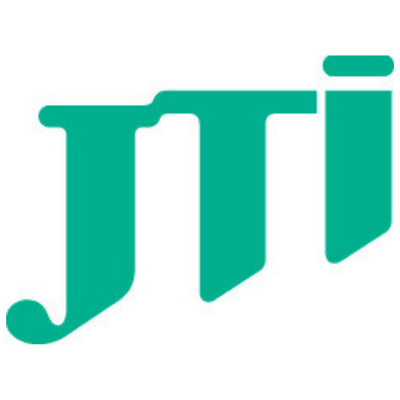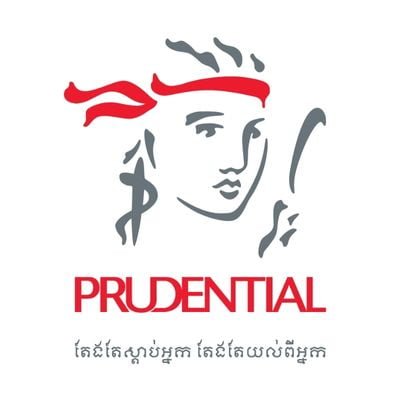Cambodia Investment Review
Cambodia is at pivot point, seeking to both solidify and expand its agri-trade relationships around the world as well as addressing historical market constraints and increasing competition from its neighbor countries. A recent keynote by H.E. Dominic Williams, the British Ambassador to Cambodia, and following panel discussions by leading stakeholders was hosted by the International Business Chamber of Cambodia offering valuable perspectives on the various factors shaping the country’s trade and export sectors.
In his keynote speech, H.E. Dominic Williams, the current British Ambassador to Cambodia, outlined the three primary areas where the UK aims to bolster its trade relationship with Cambodia. “Our focus is on three critical aspects. Firstly, the Developing Countries Trading Scheme that we’ve recently launched. Secondly, the potential for mutual growth in the agri-cultural sector, and lastly, providing Cambodian exporters with the practical information they need to tap into the UK market,” Williams said.
The Developing Countries Trading Scheme, which is replacing the previous ‘generalized systems preference,’ is designed to serve multiple purposes. “The scheme has three objectives: to support sustainable growth in developing economies like Cambodia, to help UK businesses build resilient supply chains, and to strengthen our economic ties with other nations,” stated Williams. Notably, the scheme benefits over 65 countries but offers Cambodia the most generous preferences, covering 99% of the Kingdom’s product lines duty and import tax-free. “Despite Cambodia looking to graduate from an LDC status in the coming years, it will then qualify for the 2nd tier scheme, covering 92% of its product line,” he added.

The Untapped Potential in Cambodia’s Agri-Cultural Sector
Ambassador Williams expressed optimism about the untapped potential in Cambodia’s agri-cultural sector, specifically highlighting products that are not locally grown in the UK. “Mangoes, cashews, rice, and pepper present some of the most obvious opportunities. But there are niche ideas in the organic and sustainability sector, which are gaining traction among UK consumers,” he pointed out. Williams spotlighted IBIS Rice, a local conservation enterprise that works with Cambodian farmers to produce premium organic jasmine rice, as a promising example in the sector.
Speaking on the resources available for Cambodian businesses looking to enter the UK market, Williams advised, “There’s a wealth of information on our official government websites and purpose-built portals that can help match buyers with product lines. However, due to the sheer volume of products and buyers, we recommend engaging in trade fairs to identify serious buyers.” He also mentioned that the UK has a designated advocate to assist exporters in the region.
To further smoothen the transition for Cambodian producers into the UK market, Williams elaborated on the embassy’s initiatives. “Our recently launched British Investments Partnership provides technical assistance to nearly export-ready Cambodian producers. Our Joint Trade and Investment Forum, in collaboration with the Cambodian Ministry of Commerce, is another avenue we are exploring to address common challenges in trade,” he explained.
As Cambodia looks to broaden its economic horizons, initiatives such as the Developing Countries Trading Scheme and collaborative opportunities in the agri-cultural sector could serve as significant steps forward. The British Embassy, through various schemes and technical assistance, aims to facilitate a more streamlined and beneficial trading relationship between the UK and Cambodia.
Cambodia’s Export Agro-Processing Challenges and Solutions
The following panel discussion was moderated by Eugene Kraamwinkel, Chief Executive Director of Dau Tu Saigon Binh Phuoc (SBK) Co., Ltd, and brought industry experts together to tackle the critical challenges facing Cambodia’s export processing sector. The participants included Caroline Poppe, an independent consultant, An Dara, President of the Cambodia Cashew Federation, and Jean Charles de Montaigne, General Manager of Fedrice.
Eugene Kraamwinkel initiated the conversation by questioning the panel about the most significant barriers to the growth of export processing in Cambodia. Caroline Poppe emphasized that communications, finding the right buyers, and branding pose significant challenges for marketing Cambodian products internationally. “Based on personal experience, navigating the international markets for Cambodian products is particularly difficult, not just in locating the right buyers but also in effective branding and marketing,” she stated.
An Dara, President of Cashew Federation of Cambodia, focused on Cambodia’s high potential in agriculture and the necessity of expanding this potential to international markets. He also touched upon issues related to technology, skilled labor, and production costs. “We produce around one million tons of cashews, most of which are mainly exported to Vietnam around 95% annually, while only some to other countries for further processing. There’s a need to raise awareness about the Cambodian market while overcoming technological and skilled labor gaps,” Dara remarked.
Similarly, Jean Charles de Montaigne corroborated Dara’s views, particularly regarding rice, a product with challenges akin to cashews. “We have fantastic raw products but struggle to complete the next stages needed for international selling. Education and capacity building in skilled labor across all sectors are essential if we aim to retain the value within Cambodia,” he said. Jean-Charles also pointed out that the high borrowing rates in Cambodia significantly hamper competitive financing.
Sustainable Practice Certifications Achievable for Cambodian Producers
When Eugene Kraamwinkel inquired about Cambodia’s standing in sustainability, a topic of current interest, Dara was optimistic. “Cambodia has a big potential for these products to be organic and meet environmentally friendly standards,” he assured. He noted that Vietnam imports 82% of its cashews from around the world, while about 40% from Cambodia but markets them as its own. “We want to ensure that every stakeholder benefits properly from the value chain,” added Dara.
Read more: Cambodian Tech Enterprises Pioneer Digital Transformation of Agriculture Supply Chain
Jean Charles de Montaigne provided further insight into the question of sustainability. “Getting full organic certification might be challenging for various reasons (including end consumers preferring to put money on transformed products rather than commodities), but sustainable practice certifications are achievable,” he observed. He also acknowledged geopolitical pressures affecting stockpiling and distribution.
Caroline Poppe pointed out that European consumers are increasingly concerned about both organic and nutrient-rich products. “There’s a need for a whole-market approach, such as trade fairs, to showcase Cambodian products effectively. Consistency in product quality is also a requirement,” she added.
Audience questions addressed the lack of year-round availability of Cambodian products and the excessive export of raw goods to neighboring countries. An Dara confirmed that the availability was not the issue but rather a lack of working capital to sustain year-round buying. Jean-Charles de Montaigne cited the high costs of infrastructure and electricity as key factors inhibiting investment, describing it as a “chicken and egg issue.”
The panel discussion provided a deep dive into Cambodia’s export processing challenges and potential solutions, with an emphasis on technology, skilled labor, and sustainability. Industry stakeholders remain optimistic but acknowledge that significant work lies ahead to place Cambodia competitively on the global export map.
Documentation Logistics and Financing in Cambodia’s Trade and Export Sector
The second panel discussion delved into the challenges and solutions concerning documentation logistics and trade and export finance in Cambodia. The discussion was opened by David Totten, a Business Consultant, who set the stage by emphasizing the two significant challenges facing the Cambodian export sector: availability of finance and compliance with international food quality and safety standards.
Totten stated, ” An agriculture exporter needs considerable finance in order to pay the farmer cash, even though the exporter may not be paid by their overseas client months later ” Totten also warned that meeting the rigorous standards of markets like the US and EU is non-negotiable and poses a significant challenge.
Bun Chan Phiworth, Head of Supply Chain Financial Service Department at AMK Cambodia, shared insights on supply chain financing, focusing particularly on rice and cashews. “Our approach involves financing the working capital for farmers who have maxed out their credit limits. We help increase suppliers’ credit limits to meet buyer challenges related to collateral. Our preference is for buyers or suppliers who have a financial track record, and we usually work with short credit cycles and maximum credit terms of six months,” Phiworth elaborated.
Om Sophea, Vice President & Senior Head of Trade Finance Department at ACLEDA Bank, discussed the importance of proper documentation in trade finance. She emphasized, “From a trade financing perspective, the requirements for import and export financing are pretty much the same. The supporting documentation needed includes phytosanitary certification, place of origin, packaging, and other types of certificates essential to the lender.”
Phytosanitary Certification the Most Important Step for Food Exporting
Ker Monthivuth, Director of the Plant Protection, Sanitary and Phytosanitary Department (PPSPSD), underlined the importance of phytosanitary certification, explaining its role in ensuring the safe movement of produce from the farm to the port of entry. “Phytosanitary certification is probably the most important part of food exporting. The certificate, which can take up to three days to issue, varies in duration depending on the produce. Before issuing, our inspectors must verify that the goods are properly packaged and uncontaminated,” said Monthivuth.
He also pointed out that any produce that fails to meet the criteria is subjected to a solution management plan, usually involving fumigation, and if still not compliant, it is destroyed. The costs of this process are determined by the quantity of the products exported.
Monthivuth also noted that the department continually reviews its procedures to better facilitate trade, stating, “We are always looking to update or fine-tune our procedures to enhance trade.”
With perspectives from the financial sector to compliance experts, both panels provided an in-depth look at the critical issues surrounding Cambodia’s trade and export sector. As the government puts Cambodia’s export development at its core, the conversation signalled that complexities remain but are not insurmountable, given proper financing and adherence to international standards.









